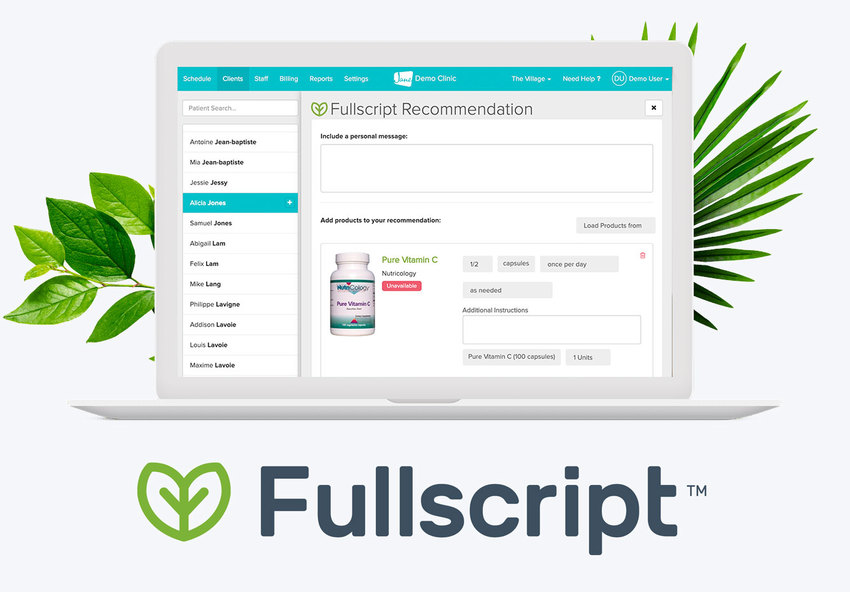
Fullscript CEO Kyle Braatz is on what he calls a “forever” mission: to establish a comprehensive technological infrastructure for the transformation of integrative and functional medicine into simply “medicine.”
With the acquisition of its main competitor, Emerson Ecologics, Fullscript has taken a major step toward fulfillment of that mission.
The deal, announced in mid-March, will consolidate the nation’s two largest practitioner-channel dietary supplement distribution into a single entity. It will integrate the data processing, practice support, and educational resources developed independently by both companies, and will greatly expand the possibilities for bringing nutrition-based medicine into the medical mainstream.
Combined, the two companies currently serve an estimated 70,000 healthcare professionals, and approximately 5 million patients. They distribute products from more than 400 distinct brands.
Braatz, who recently spoke with Holistic Primary Care, says that’s a solid starting point, but he envisions a much greater expansion.
“There’s about one million practitioners in North America today, and 80% of them recommend supplements in one way or another. So, when you look at those 800,000 practitioners and you hear about 60% transitioning their practices to focus more on prevention…that’s a market which we want to be readily available to support,” Braatz said, referring to a recent Deloitte analysis of physician practice patterns.
“So what does that mean in 3-5 years? That means that the market number could be hundreds of thousands of practitioners .”

The financial terms of the Emerson acquisition have not been disclosed. But the sum is likely sizeable. Fullscript and Emerson are both backed by private equity groups—Fullscript by HGGC (Huntsman Gay Global Capital) and Snapdragon Capital Partners, and Emerson by Liberty Lane Partners.
According to Braatz, Liberty Lane will maintain “a substantial minority share” in the combined company, and several Emerson executives will remain in place. “They’re very bought-in to our vision and mission…which I think is a testament to the opportunity we have in front of us.”
Beyond Supplements
Fullscript’s leader is eager to reframe public perception of the Ottowa-based company.

“A lot of people see Fullscript as strictly a supplement dispensing platform. But what they don’t see is the work we’ve put in to building a user experience that makes it easy for a practitioner to deliver a comprehensive treatment plan, to leverage our education and evidence-based library of nutrition articles, exercise, mindfulness content. We’ve done a tremendous amount of adherence work, to really be a partner to practitioners.”
Jeff Gladd, MD, a functional medicine physician in Ft. Wayne, Indiana, serves as Fullscript’s Chief Medical Officer. Over the years, he has been a customer of both companies. “When I started a hospital based integrative practice, and early on in my own practice, Emerson was my in-clinic dispenser. Then I started bringing in online dispensing through Fullscript. So, I’ve seen the advantages of both.
He, too, emphasized that the combined entity will be much more than a supplement vending machine.
“We want to offer everything related to health optimization. Yes, supplements play some role in that. But it’s more than that. Like I tell my patients, if I do my job right and provide you the tools to execute nutrition, movement, and mindfulness, you’ll need less of me and my care, because you have tools to take that proactive journey. We want to provide practitioners and their patients with those tools.”
A Massive Integration
The integration of Emerson and Fullscript will no doubt be fraught with logistical challenges. Once achieved, though, there will likely be major advantages for practitioners, including:
- Access to the broadest catalog of professional-level supplement products under a single umbrella
- Ease of ordering and fulfillment from a single entity
- Better integration into daily workflows via interfaces with electronic health record systems
- A wider range of educational materials and patient support tools
- Future integrations with telehealth platforms
In the near term, practitioners who have accounts with either Fullscript, Emerson, or both, won’t notice any changes other than a new statement under the Emerson logo indicating that it is now “a Fullscript company.”
According to Dr. Gladd, “Emerson is a very strong brand with a great reputation, extremely strong in the in-clinic dispensing space. We know that for lots of practitioners, their practices are really built on that. We have no interest in changing that. Kyle and everyone here recognize that practicing integrative medicine is difficult. So, we don’t want to add complexity to something that is already complex. Keeping those existing workflows in place is critical.”
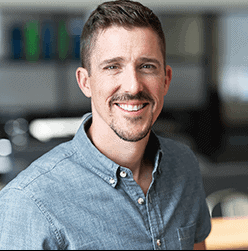
A key step will be the harmonization of the product catalogs. Gladd says a near-term goal is to ensure that practitioners with Fullscript accounts have access to everything on the Emerson side, and vice versa.
He adds that the Hippocratic ideal of “First do no harm” guides all decision-making at Fullscript.
“We don’t want to do harm to your work flows, to your patients’ healing journeys. So, it is not going to look different or function differently until we feel really confident that “different” is better. He added that the company is seeking input from current practitioner-customers. “We promise you that we will be transparent all along the way.”
Seeds of the Deal
Emerson Ecologics was established in 1980 by nutritionist Joe Emerson and his brother Bill as a system for distributing high-end vitamin products to practitioners. The company has a long and entwined history with Fullscript.
Ten years ago, the nascent Fullscript–then called HealthWave–was born out of a partnership with Emerson.
“Our entrance into the US market was as a partner to Emerson,” says Braatz. “We built a software platform, we launched it in Canada, and saw strong success with the naturopathic doctor market. We ended up partnering with Emerson to be our distribution partner, and we launched the same software platform in the US in 2012.”
That early iteration he says was, “a complete failure, but probably the best mistake we’ve ever had. It allowed us to step back and broaden the vision. We started off just building a virtual dispensary platform, an e-commerce platform for practitioners to sell products. Then we realized we needed to build something bigger than just e-commerce for doctors.”
What was missing, says Braatz was an integrative care-delivery platform that facilitated practitioner-patient relationships and dovetailed with existing practice patterns.
“If you look at conventional medicine there’s been trillions of dollars spent on infrastructure. Whereas in integrative medicine there’s really nothing. And no big companies were trying to solve that. We have this belief that if we can build a better patient care experience, we can help drive better clinical outcomes.”
Braatz and Fullscript eventually broke away from Emerson and in 2014 acquired Natural Partners, an Arizona-based distributor founded by entrepreneur Ty Smith, which was at the time Emerson Ecologics’ main competitor.
Fran Towey, Emerson’s former CEO and President from 2008 to 2011 had become CEO of Natural Partners at the time it was acquired by Fullscript. Towey became CEO of Fullscript in 2018, and was the company’s executive chairman until last January.
Braatz says that despite the competition, executives at Fullscript and Emerson have kept in touch and relations have been friendly over the years.

“We’ve always talked about the fact that ultimately, we have the same vision, the same mission. We’re both aligned with helping doctors to provide better care. We would talk about, what if we put our collective resources together to really build this industry up and be that rising tide that lifts all boats, which is what integrative medicine really needs. We’ve been having these conversations for a long time, and finally the timing was right.”
EHR Integrations
Prior to the acquisition, Fullscript and Emerson were both working toward interoperability with electronic health record (EHR) systems. It’s an effort that will remain top-priority.
Dr. Gladd pointed out that Fullscript already has over 20 EHR partners, with more in the works. EHRs, he says, are “where clinical decisions get made. That’s where the treatment plans are created. So, we want to live there. We’re not trying to be another window that practitioners have to open on their screens. We want to be inside that first window.”
Practitioners who have Fullscript built into EHR workflows use the system almost 40% more frequently than they did before. “It’s because we’re right there, top of mind,” says Braatz, adding that the company has invested heavily in its Application Programming Interface (API) and recently launched a fullscript.dev site to make it easy for EHR developers and programmers to incorporate Fullscript into their systems.
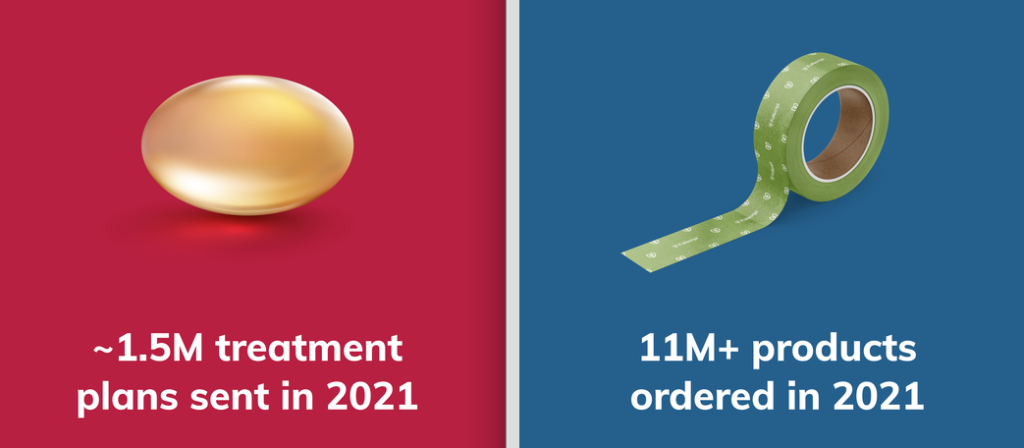
Telemedicine is also on the minds of the executive team. The Covid pandemic sparked spectacular growth in remote visits, and though utilization has tapered from its mid-pandemic peak, there’s no question that teleconsults have become standard practice.
Fullscript did not have any direct telehealth integrations at the time of the acquisition, but Emerson’s Wellevate platform does have a telemedicine partnership. Moving forward, Fullscript’s leaders envision growth into telemed by making it as easy as possible for existing platforms to integrate Fullscript, rather than by trying to build teleconsult capabilities directly into the Fullscript system.
An Eye on the Mainstream
While fully committed to serving Fullscript’s core of naturopathic and functional medicine practitioners, the executive team intends to grow the company into the medical mainstream.
Braatz points out that Fullscript has already made inroads within major hospital systems. But typically it has been siloed in the integrative clinics of those hospitals, somewhat isolated from the broader clinical networks. He wants to break through those constraints. The good news, he says, is the groundwork has already been laid.
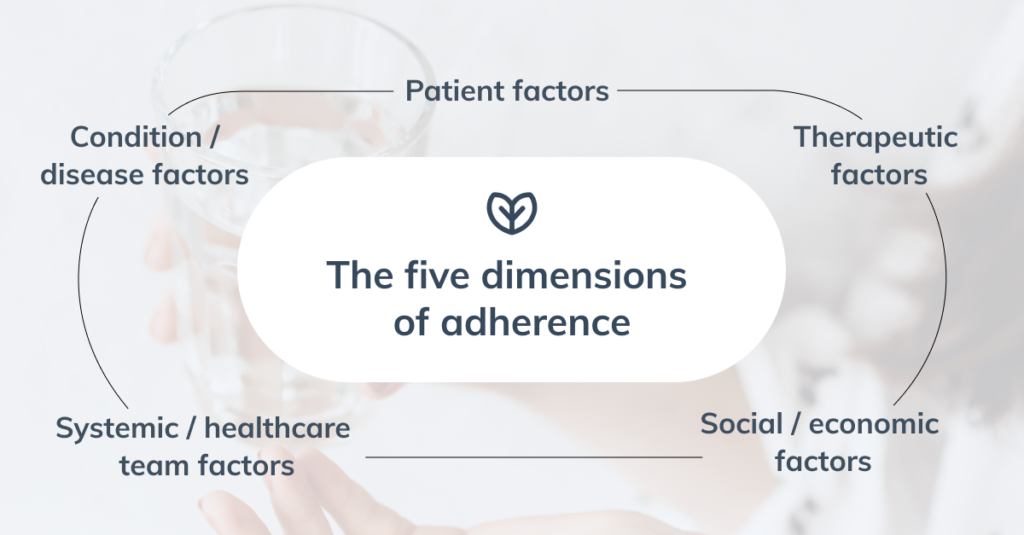
“We’ve also gone through all of the contracting, the security assessments, the privacy assessments, the sign-offs from the CEO. When it does come to the expansion, we’re really well-positioned to do that.”
Gladd sees growing interest within hospital systems. “They want a couple of things: First, they want some basic education and evidence base for making supplement recommendations. We have that, and we’re building it to make it even more reachable for those practitioners who are just starting. Second, this has to be integrated into the workflow. So that’s why we’re working on building interfaces toward the bigger EHRs.”
A Win for Clinicians
The fusion of Fullscript and Emerson will be a big win for clinicians and their patients, predicts Paul Mittman, ND, President of Southwest College of Naturopathic Medicine.
“The naturopathic community has close ties to both companies. Many prominent naturopaths have worked at or represented both, and both companies have done so much for the profession,” he told Holistic Primary Care. “The core values and missions are so strong and aligned. The merger will mean everyone will be better served.”
Mittman has had extensive experience with each company. When he was practicing in Connecticut in the early 1990s, he used Emerson to stock his medicinary. Throughout his tenure at SCNM, Natural Partners which then became Fullscript has been a steady presence at the school.
Mittman says online dispensing is “strong and only going to grow” in the coming years. “We do have a brick and mortar medicinary at the SCNM clinic, but in-person sales have dropped in recent years, especially since the pandemic. Sales via the school’s ShopSCNM.com website have increased.” That store is powered by Fullscript.
Does Merger Mean Monopoly?
The Fullscript-Emerson fusion will no doubt have significant impact on supplement brands. Both companies make money by purchasing products from the supplement companies at a substantial discount. Fullscript’s acquisition of Emerson consolidates the market, and concentrates a lot of bargaining power into the new entity.

This raised concerns about a potential monopoly—so much so that the Department of Justice had to review and clear the acquisition before it could proceed.
“I was called before the DOJ about this, as were a number of other heads of companies,” says Chris Shade, PhD, founder and CEO of Quicksilver Scientific, a leading practitioner-focused supplement brand. “Just about all of us did see anti-competitiveness issues.”
Sales via Emerson and Fullscript represent “a substantial portion” of Quicksilver’s total revenue.
“This is a massive consolidation. I frankly didn’t think DOJ would let it happen,” Shade said. “This is going to put a lot of pressure on us and the other brands. If there’s nowhere else to go, they (Fullscript) can pretty much set their own course as far as the discount they demand, and you’ll have to agree or else you won’t get that scale of distribution. There will likely be a loss of margin for us, hopefully not all that much.”
There are, in fact, several smaller distributors that do provide other options for the supplement makers. But they are considerably smaller than Fullscript.
Doctors Supplement Store (DSS), a St. Louis-based distributor that currently serves approximately 3000 practitioners, is one of them. Dave Preis, the company’s president says he, too, was interviewed by the DOJ. Understandably, he sees cause for concern.
“It does seem like, practically, this creates a monopoly situation. But on the other hand, consumers aren’t necessarily going to be negatively impacted. It is not like they’re (Fullscript) saying they’re going to limit the number of brands, and so now consumers won’t have access the way they did before. It actually may open up greater access, so that’s a good thing. But from my standpoint, and that of other small players, this could be potentially damaging to us.”

That said, Preis says the situation won’t change his business strategy. He’s confident that if DSS continues to cultivate its core values and its direct customer service, it will grow and thrive even in a rapidly consolidating market.
“We can’t compete with Fullscript on their level. That ship passed long ago. So, we have to play to our strengths. We’ll be promoting the extremely high level of personalized service we provide, as well as our order accuracy rate and shipping times. We get the products out on the day they’re ordered almost 100% of the time. That really matters to people. We have a ton of practitioners that love what we do for them and their patients. That’s our largest growth driver.”
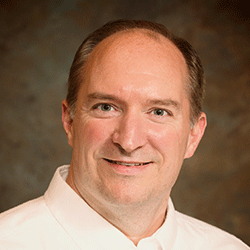
Preis also pointed out that there are many smaller supplement brands providing condition-specific products for specific patient niches. These sub-markets may be too small, volume-wise, to interest titans like Fullscript but they can provide ample opportunities for DSS and other smaller distributors.
Aaron Bartz, president of Ortho Molecular Products, contends that a deal as big as the Emerson acquisition reflects a maturation of the nutraceutical market, and a recognition among investors that holistic, functional, and naturopathic medicine have legitimacy.
“It shows there’s a lot of interest in our channel when you see that kind of money roll through,” Bartz told Holistic Primary Care.
“One of the areas that I don’t think anybody has tapped is how to get to that ‘blue ocean’ of conventional doctors and enable them to access, integrate, and utilize our products. A lot of conventional docs are in managed care systems where they can’t have a formulary. The Fullscript platform gives them opportunities. There’s a lot of potential growth in the conventional space, and Fullscript is going after it.”
But Bartz is also concerned about market dominance by a single distributor. “I’m cautious on the lack of competition. Competition is good for innovation, and for a lot of things. You need competition for things to remain healthy. Now, Fullscript will have almost no competition.”
Kevin Brown, Sales Operations Manager for Standard Process, sees the deal as a big win for the field.
“I have worked with both organizations for many years. They have both been excellent partners. Fullscript has been the leader in direct-to-patient fulfillment and Emerson has been the leader in wholesale fulfillment to practitioner offices. Combining their expertise under one umbrella will create a powerful teammate for supplement brands, and practitioners.”
Kyle Braatz is quick to quell concerns about monopoly.
“That’s just not our agenda. Our objective is to build this industry up, and create economies of scale that we share in with our practitioners, our patients, our supplier partners. This is not a problem we can solve alone. This is a big enough problem that it’s going to take a village, an entire ecosystem of organizations and individuals dedicated to this belief. So, we always felt that we’re doing this together, there’s enough room for all of us.
Pricing is important, he says. But the company has no intention of driving the supplement brands into untenable discounts. “If we only think short-term and just try to extract as much value as we can out of this space, we’ll never be able to build the infrastructure needed to make integrative medicine simply medicine. We’re focused on the ecosystem, and a big part of this ecosystem is the suppliers.”
He added that once the Emerson and Fullscript catalogs are fully integrated across both platforms, supplement makers will quickly see big advantages. “From an operational perspective it will be much easier for these supplier partners to work directly with just one group when it comes to purchasing, procurement, forecasting, and everything else.”
The Long Game
What is Fullscript’s long game? Ten years from now, will we see the company go public? Will it be acquired by an even larger corporate entity?
It is far too soon to tell, but Braatz says his strategic decisions will all center on the main objective of establishing a solid practice infrastructure for integrative medicine.
He says he wants Fullscript to eventually be “to be IPO-ready. But that doesn’t mean that an IPO is the best outcome for the company. Ultimately if that helps us get to our ‘forever’ mission, and continue this journey, then that’s something we’re going to consider. Whatever allows us and enables us to deliver on our vision, that’s what we’re going to do. So that could mean taking more funding, that could mean going IPO.”
When we started this company, we started it…I had done a couple of other entrepreneurial gigs, but didn’t have any purpose when we were building that. We ended up selling one of the companies, and we said, “Whatever we do next has to be something we can do for the rest of our lives.” It has to be a forever mission. It has to have purpose. So we are on this forever mission. Everything we do is thinking long term.”
Today’s practice landscape looks very different from what it was 30 years ago: the internet has made it possible for ordinary people to access the world’s medical literature, to connect with other people who share their health concerns, and to easily purchase a vast array of health products. And now home diagnostics and teleconsults have entered that mix.
Dr. Gladd feels strongly that there will always be a place for physicians, nurses, and other health professionals in peoples’ lives.
“We look at all these direct-to-consumer tools, home testing, and diet plans that patients do on their own as great opportunities to started on their journeys. But then people are always going to want a trusted practitioner to guide them. We want to be able to arm all levels of practitioners who are talking to the patients about integrative medicine, and that journey of health.”
He believes integrative medicine is the best healthcare investment we as a nation could make, whether that is via insurance companies, federal payers, or private out-of-pocket expenditures. “I’ve seen the outcomes with my own eyes, thousands of times. So, has every integrative medicine practitioner.”
By providing services that increase the efficiency and economic viability of integrative care while simultaneously gathering and sharing data on best practices, the now-augmented Fullscript plans to be a major influence on the future of the field.
END







